Simon Rey
Let's Agree to Agree: Targeting Consensus for Incomplete Preferences through Majority Dynamics
Apr 28, 2022



Abstract:We study settings in which agents with incomplete preferences need to make a collective decision. We focus on a process of majority dynamics where issues are addressed one at a time and undecided agents follow the opinion of the majority. We assess the effects of this process on various consensus notions -- such as the Condorcet winner -- and show that in the worst case, myopic adherence to the majority damages existing consensus; yet, simulation experiments indicate that the damage is often mild. We also examine scenarios where the chair of the decision process can control the existence (or the identity) of consensus, by determining the order in which the issues are discussed.
An Optimal Procedure to Check Pareto-Optimality in House Markets with Single-Peaked Preferences
Feb 14, 2020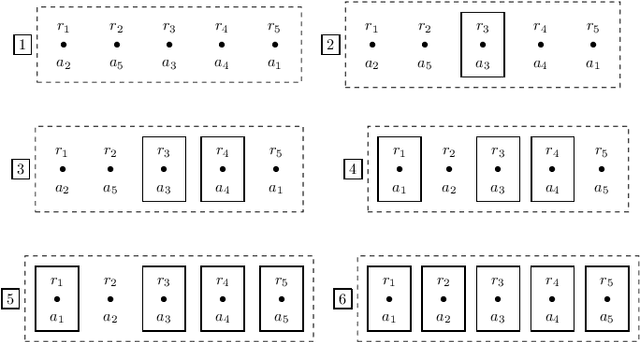
Abstract:Recently, the problem of allocating one resource per agent with initial endowments (house markets) has seen a renewed interest: indeed, while in the domain of strict preferences the Top Trading Cycle algorithm is known to be the only procedure guaranteeing Pareto-optimality, individual rationality, and strategy proofness. However, the situation differs in the single-peaked domain. Indeed, Bade presented the Crawler, an alternative procedure enjoying the same properties, with the additional advantage of being implementable in obviously dominant strategies. In this paper we further investigate the Crawler and propose the Diver, a variant which checks optimally whether an allocation is Pareto-optimal for single-peaked preferences, thus improving over known techniques used for checking Pareto-optimality in more general domains. We also prove that the Diver is asymptotically optimal in terms of communication complexity.
Almost Group Envy-free Allocation of Indivisible Goods and Chores
Jul 16, 2019


Abstract:We consider a multi-agent resource allocation setting in which an agent's utility may decrease or increase when an item is allocated. We take the group envy-freeness concept that is well-established in the literature and present stronger and relaxed versions that are especially suitable for the allocation of indivisible items. Of particular interest is a concept called group envy-freeness up to one item (GEF1). We then present a clear taxonomy of the fairness concepts. We study which fairness concepts guarantee the existence of a fair allocation under which preference domain. For two natural classes of additive utilities, we design polynomial-time algorithms to compute a GEF1 allocation. We also prove that checking whether a given allocation satisfies GEF1 is coNP-complete when there are either only goods, only chores or both.
House Markets and Single-Peaked Preferences: From Centralized to Decentralized Allocation Procedures
Jun 24, 2019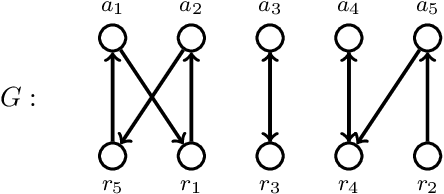
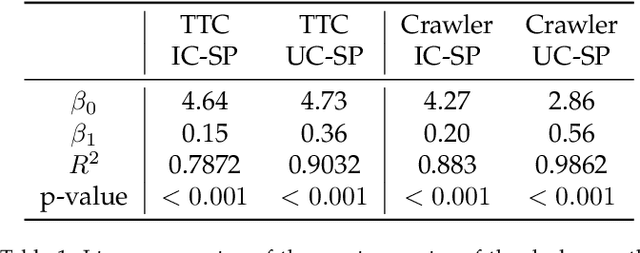
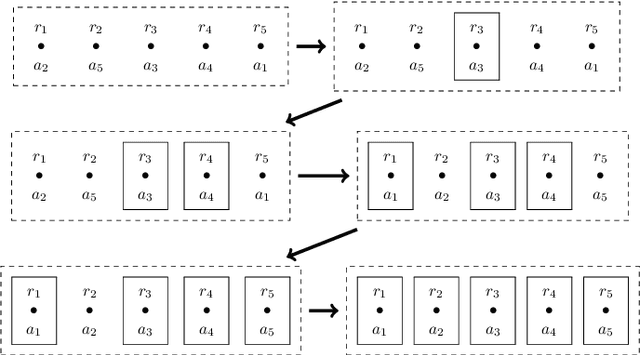
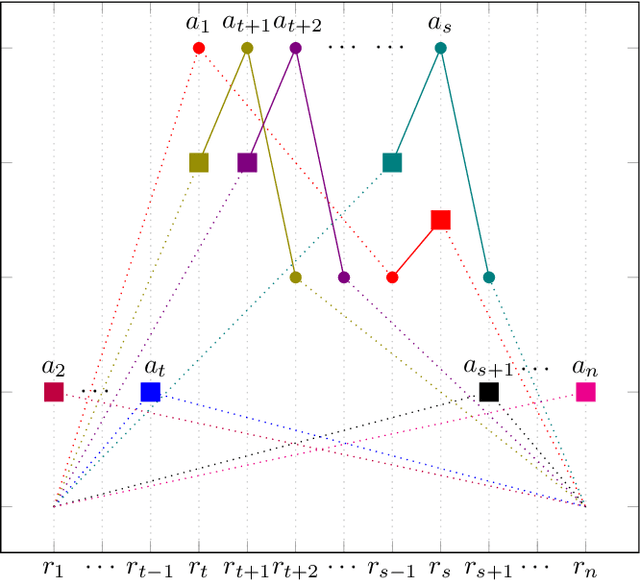
Abstract:Recently, the problem of allocating one resource per agent with initial endowments (\emph{house markets}) has seen a renewed interest: indeed, while in the general domain Top Trading Cycle is known to be the only procedure guaranteeing Pareto-optimality, individual rationality, and strategy proofness, the situation differs in single-peaked domains. Bade (2019) presented the Crawler, an alternative procedure enjoying the same properties (with the additional advantage of being implementable in obviously dominant strategies); while Damamme et al. (2015) showed that allowing mutually beneficial swap-deals among the agents was already enough to guarantee Pareto-optimality. In this paper we significantly deepen our understanding of this decentralized procedures: we show in particular that the single-peaked domains happen to be ``maximal'' if one wishes to guarantee this convergence property. Interestingly, we also observe that the set of allocations reachable by swap-deals always contains the outcome of the Crawler. To further investigate how these different mechanisms compare, we pay special attention to the average and minimum rank of the resource obtained by the agents in the outcome allocation. We provide theoretical bounds on the loss potentially induced by these procedures with respect to these criteria, and complement these results with an extensive experimental study which shows how different variants of swap dynamics behave. In fact, even the simplest dynamics exhibit very good results, and it is possible to further guide the process towards our objectives, if one is ready to sacrifice a bit in terms of decentralization. On our way, we also show that a simple variant of the Crawler allows to check efficiently that an allocation is Pareto-optimal in single-peaked domains.
Efficiency, Sequenceability and Deal-Optimality in Fair Division of Indivisible Goods
Jul 28, 2018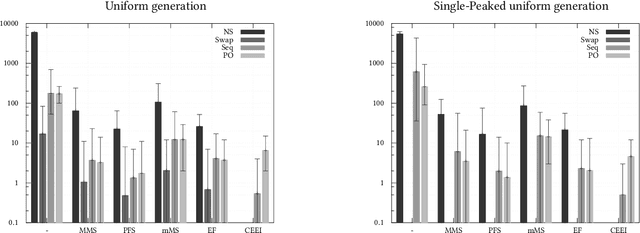
Abstract:In fair division of indivisible goods, using sequences of sincere choices (or picking sequences) is a natural way to allocate the objects. The idea is as follows: at each stage, a designated agent picks one object among those that remain. Another intuitive way to obtain an allocation is to give objects to agents in the first place, and to let agents exchange them as long as such "deals" are beneficial. This paper investigates these notions, when agents have additive preferences over objects, and unveils surprising connections between them, and with other efficiency and fairness notions. In particular, we show that an allocation is sequenceable iff it is optimal for a certain type of deals, namely cycle deals involving a single object. Furthermore, any Pareto-optimal allocation is sequenceable, but not the converse. Regarding fairness, we show that an allocation can be envy-free and non-sequenceable, but that every competitive equilibrium with equal incomes is sequenceable. To complete the picture, we show how some domain restrictions may affect the relations between these notions. Finally, we experimentally explore the links between the scales of efficiency and fairness.
 Add to Chrome
Add to Chrome Add to Firefox
Add to Firefox Add to Edge
Add to Edge